Probing ‘Intelligens’ in architecture: A guide to the Venice Architecture Biennale 2025
by Mrinmayee BhootApr 26, 2025
•make your fridays matter with a well-read weekend
by Aarthi MohanPublished on : Sep 09, 2024
Cooking, digesting, and growing are not merely daily actions but vital processes that intertwine life forms, shaping ecosystems and forging connections between humans and the environment. The Transspecies Kitchen, an innovative project developed by Andrés Jaque and his Office for Political Innovation, now installed at the Middelheim Museum in Antwerp, Belgium, encapsulates this concept. This kitchen transcends traditional food preparation, offering a radical reimagining of how we interact with food, energy and waste, challenging conventional notions of cooking and dining.
Cooking has always been a cultural practice reflecting the values, traditions and social structures of a society. In many cultures, the kitchen is the heart of the home, a space where families gather, stories are shared and traditions are passed down through generations. This project prompts us to redefine the kitchen’s cultural role, reshaping it into a place of thoughtful interaction with nature rather than merely a functional domestic space. “The choice of situating it in a public space like the Middelheim Museum is deeply political,” Jaque tells STIR. In Antwerp, a city grappling with issues such as soil toxicity and access to fresh food, the installation serves as a "parliament," where the transition from extractivism and inequality to mutual care is made both sensible and accountable.
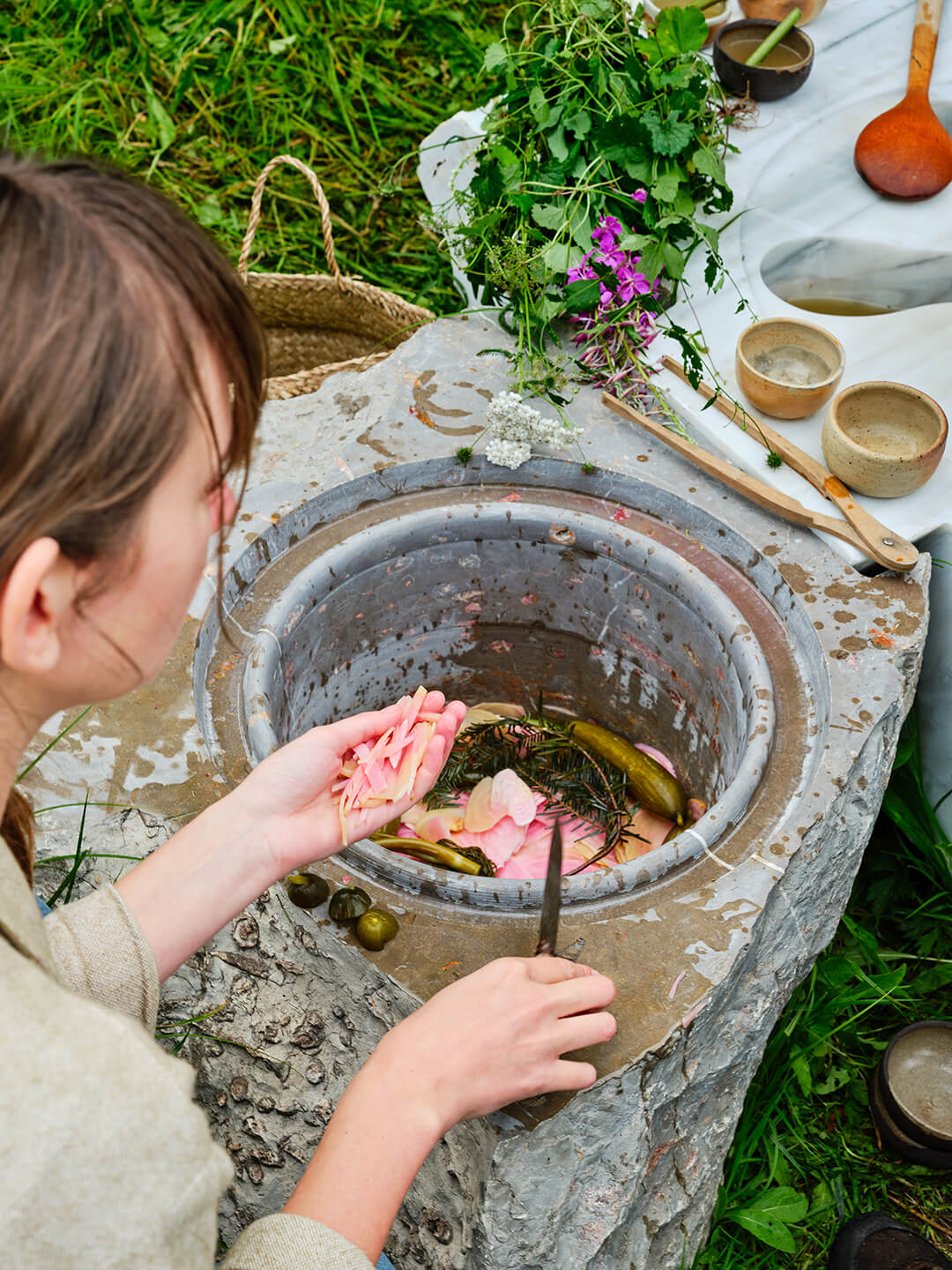
The project is a culmination of a collaboration between the New York and Madrid-based architecture practice and M-Marble Project, a stone fabrication company. Beginning in 2021, this project sought to explore the potential of kitchen design as a medium for geopolitical expression. The culinary installation continues OFFPOLINN's longstanding commitment to exploring food and kitchening as trans-scalar, political and ecosystemic since 2003. Their previous projects, such as the 2003 Techno-Human, the 2007 1L Oil Banquet and the 2019 hybrid space Run Run Run in Madrid, laid the groundwork for this current initiative. These projects explored the relationship between food and society, each questioning traditional practices and proposing innovative alternatives. The focus on material ecology, as demonstrated in projects like COSMO, MoMA PS1, is continued here, focusing on how chains of flowing material transformation are one of the ways for architecture to transition across scales.
The "kitchening" concept at the project's core reimagines the kitchen as a space for ecological and political interaction. Here cooking transforms into an act of alliance between various life forms. Focusing on fermentation as a symbol of this collaboration highlights our interconnectedness with broader ecological processes. Translating these abstract concepts into a tangible space presented significant challenges for the architect. As Jaque relays to STIR, "Working on transspecies alliances has two fundamental challenges. The first is scale: transspecies actions require mediating between radically different times and scales of existence - how to bring together the short life of bacteria with the slow evolution of stones. Traditionally architecture has operated within a narrow part of the scalar spectrum, between 1 micron and 1 mile and temporarily from one hour to 11.500 years. However, this is only a small segment of what is possible. Our office seeks to explore these missed dimensions, addressing both smaller, faster interactions and larger, slower phenomena.”
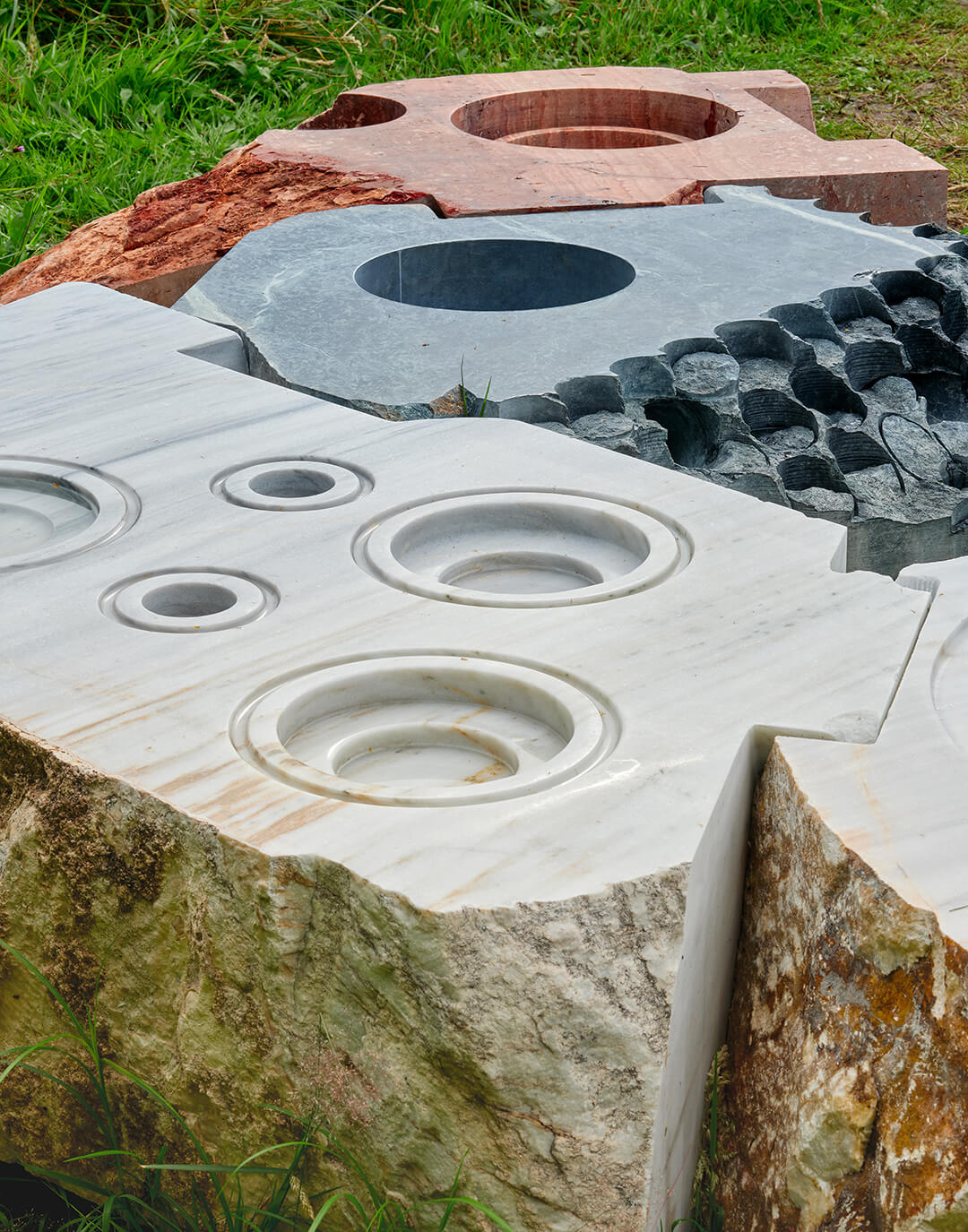
A critical aspect of the design is its use of materials, particularly the repurposing of waste from the stone extraction industry. Constructed from pieces of marble discarded by quarries, the kitchen emphasises sustainable stone architecture by repurposing materials that would otherwise be cast aside as waste, critiquing industrial inefficiency. This choice of material is both a practical and symbolic decision, representing a commitment to sustainable design and a circular economy mindset. By utilising these discarded pieces, the project transforms what was once considered worthless into something of value, setting a precedent for the creative reintegration of materials into functional designs.
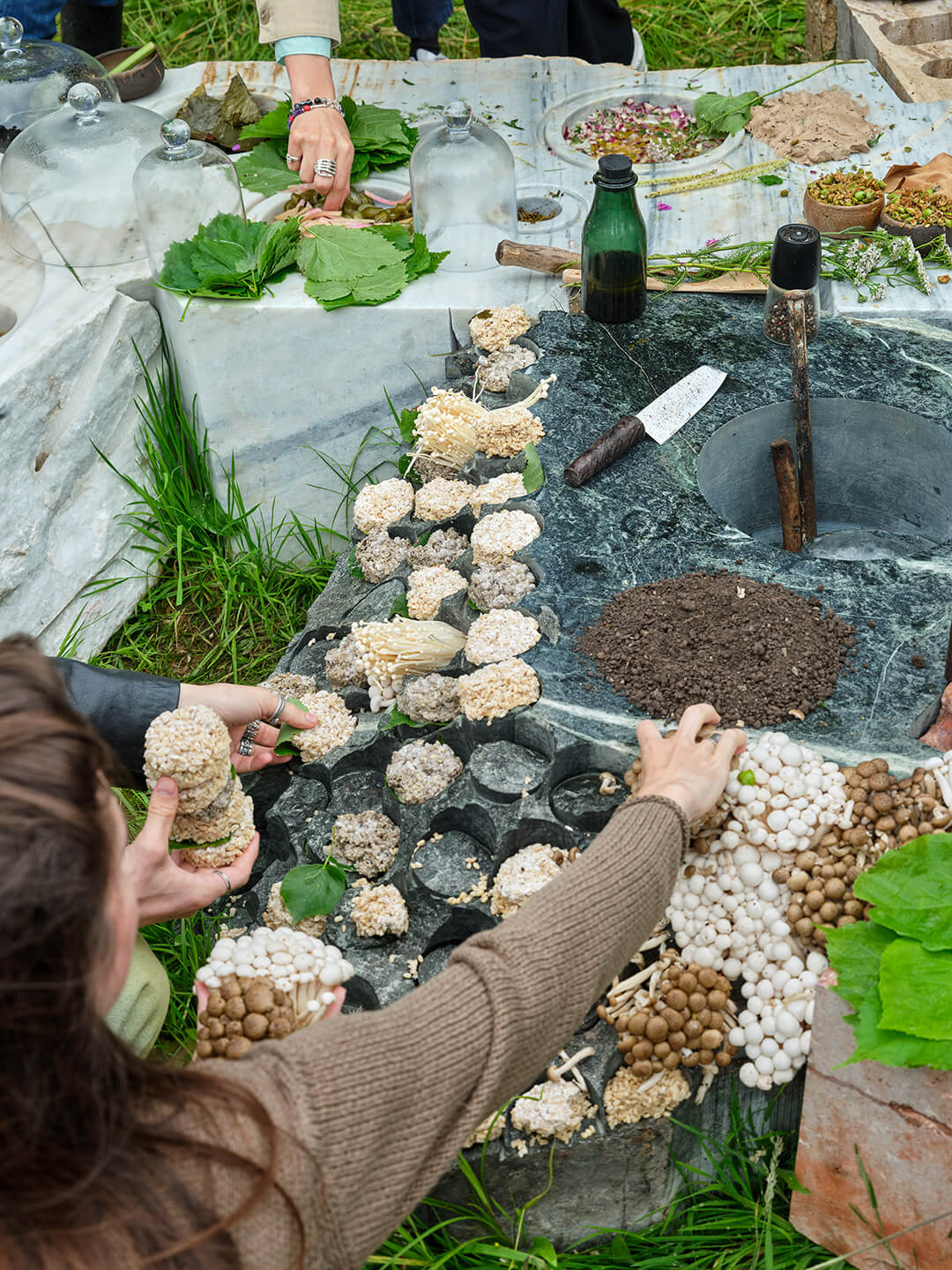
Fermentation, the core method of food preparation here, embodies the project’s ecological ethos. Zymology, or the study of fermentation, involves the transformation of food through the action of bacteria and fungi. Acting as a cooperative system of microorganisms, the public installation reimagines how humans connect with and interact with the wider, more-than-human world.
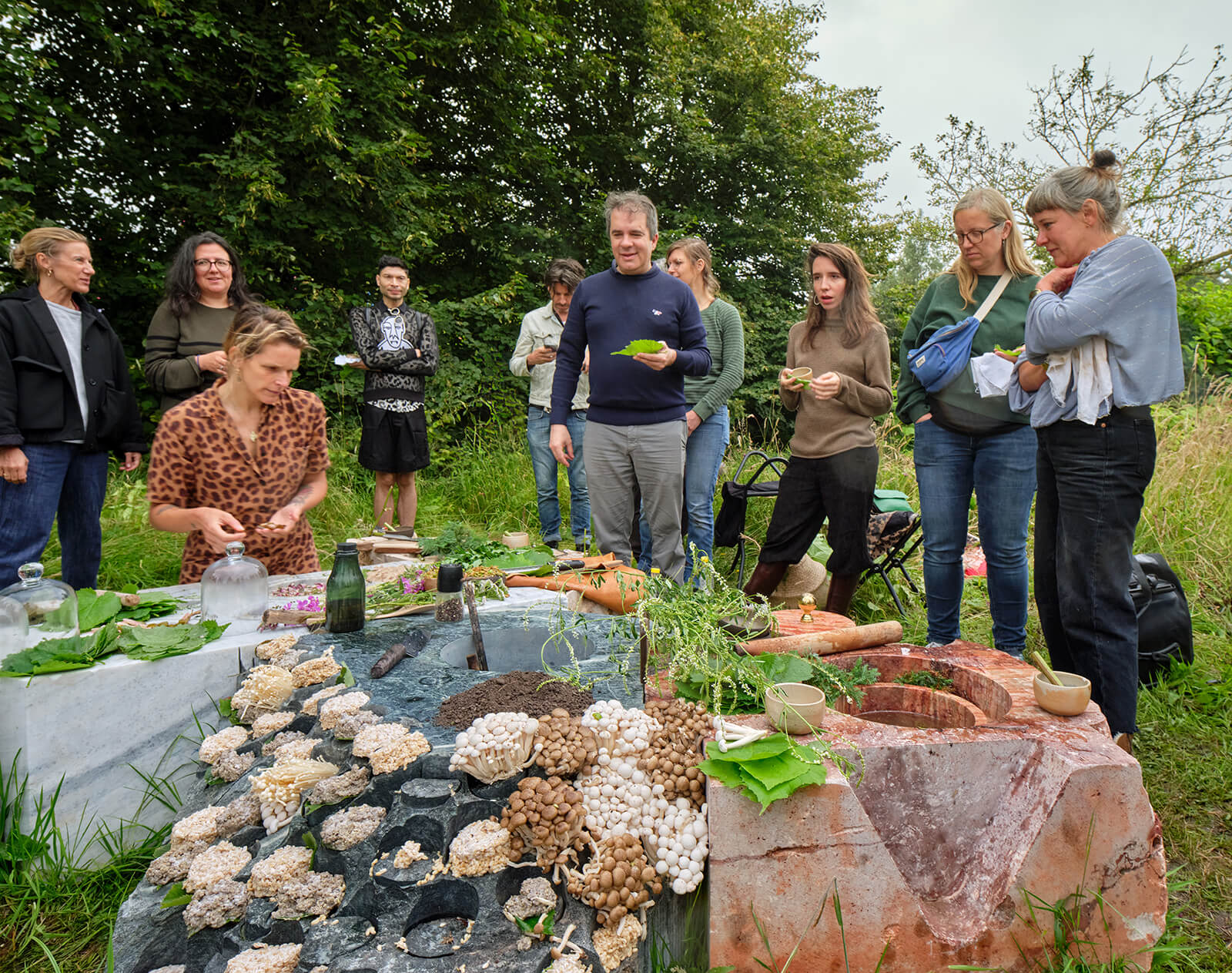
Starting July 2024, the kitchen became an active site of engagement, hosting Antwerphagia, an event that highlights the reciprocal relationship between humans and the ecosystems of Antwerp. In a region where soil toxicity and climate change are pressing concerns, Antwerphagia seeks to forge new alliances between species, based on mutual care and respect. Sharing his views on the challenges shaping the project, the architect emphasises that responding to the climate crisis requires a paradigm shift that moves away from modernity's business-as-usual approach. The project is designed to confront and provide alternatives to the intersecting layers of extractivism, colonialism, militarisation, racialisation, technocracy, patriarchy and anthropocentrism.
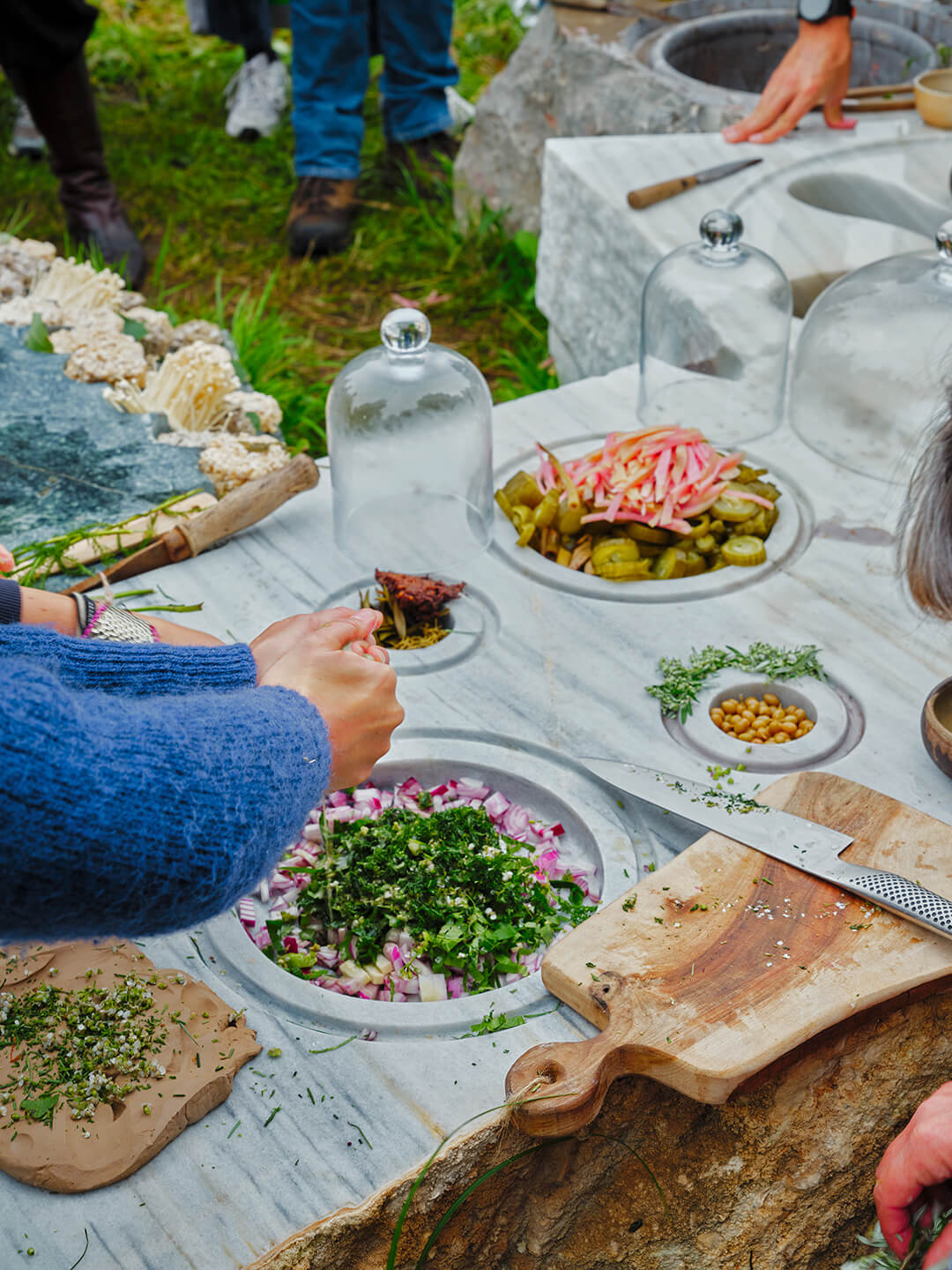
Participants can experience these interactions through taste, smell and even discomfort; reminding them that their bodies are deeply connected to the ecological systems that surround them. Sensations such as intoxication, euphoria, or even dyspepsia become part of the experience, illustrating how food is not just sustenance but also a medium through which we engage with the world.
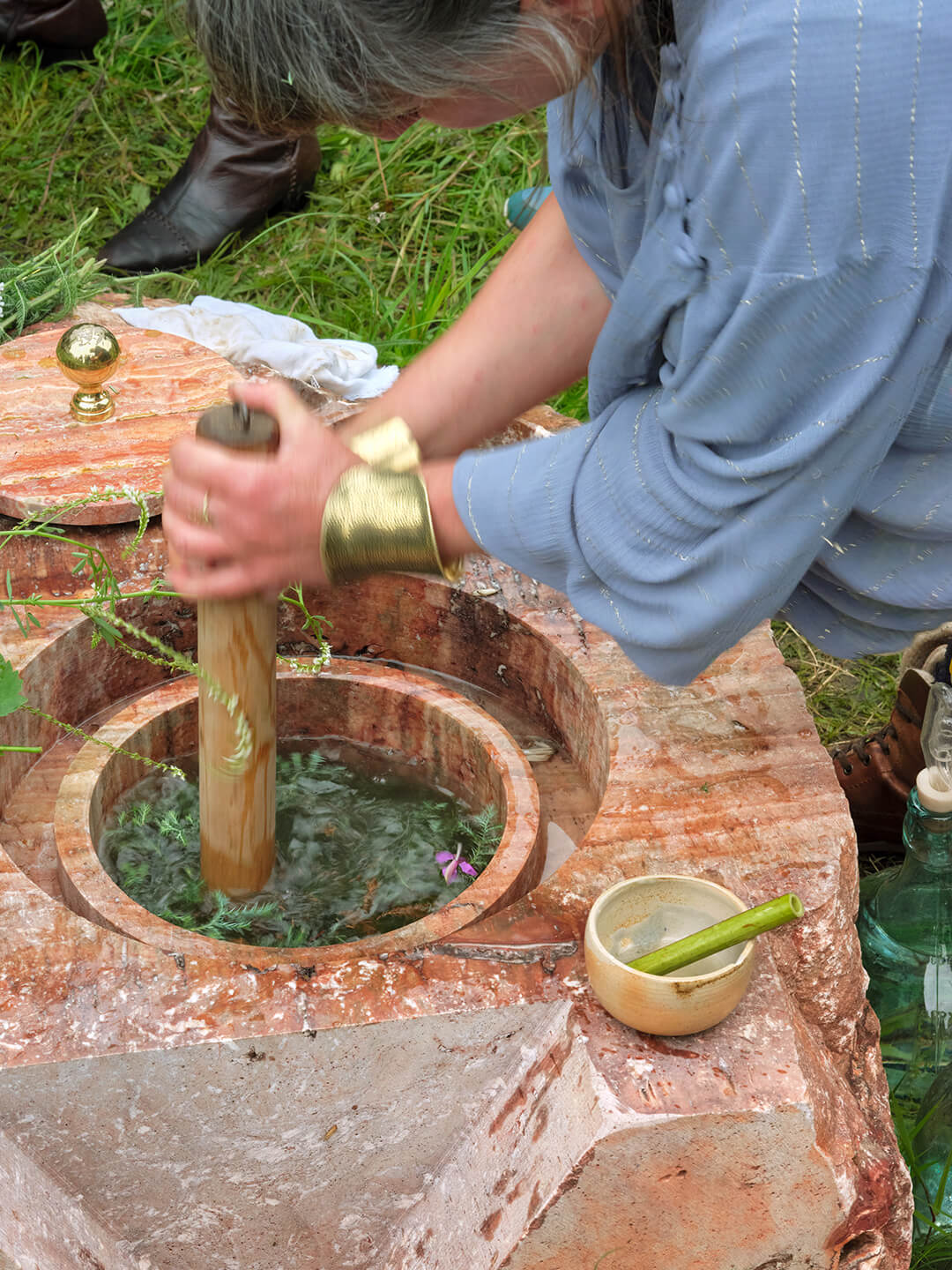
Building on the principles of the project, the future of culinary design may see kitchens evolving into spaces that are as much about community and sustainability as they are about food preparation. We might see the rise of smart kitchens that monitor and reduce energy consumption or urban kitchens that incorporate indoor framing to support local food systems. These speculative designs would not only address environmental concerns but also strengthen social ties, positioning the kitchen as a central element in residential architecture and public architecture.
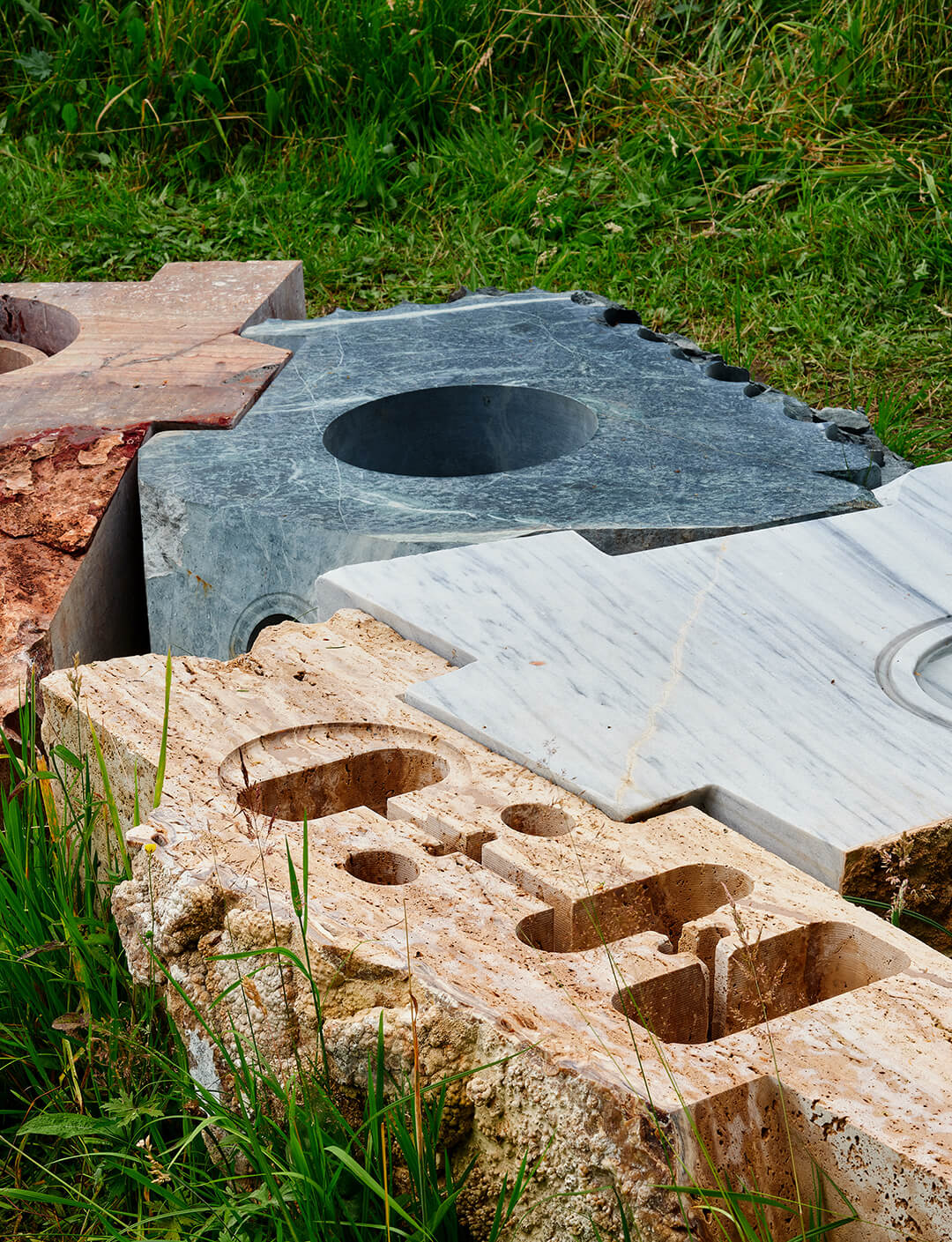
At its core, this sustainable architecture project is a call to action, encouraging us to see the kitchen as a collective intestine; an ecosystem where the energy and resources we consume are part of a continuous, regenerative cycle. The project asserts that architecture is not just about space but how different life forms are interwoven and composed together. As the world grapples with the consequences of industrialisation and environmental crisis, The Transspecies Kitchen offers a hopeful path forward, showing that through cooperation with the surrounding world, we can develop more harmonious, life-affirming ways of living and eating.
by Bansari Paghdar Oct 16, 2025
For its sophomore year, the awards announced winners across 28 categories that forward a contextually and culturally diverse architectural ecosystem.
by Mrinmayee Bhoot Oct 14, 2025
The inaugural edition of the festival in Denmark, curated by Josephine Michau, CEO, CAFx, seeks to explore how the discipline can move away from incessantly extractivist practices.
by Mrinmayee Bhoot Oct 10, 2025
Earmarking the Biennale's culmination, STIR speaks to the team behind this year’s British Pavilion, notably a collaboration with Kenya, seeking to probe contentious colonial legacies.
by Sunena V Maju Oct 09, 2025
Under the artistic direction of Florencia Rodriguez, the sixth edition of the biennial reexamines the role of architecture in turbulent times, as both medium and metaphor.
 surprise me!
surprise me!
make your fridays matter
SUBSCRIBEEnter your details to sign in
Don’t have an account?
Sign upOr you can sign in with
a single account for all
STIR platforms
All your bookmarks will be available across all your devices.
Stay STIRred
Already have an account?
Sign inOr you can sign up with
Tap on things that interests you.
Select the Conversation Category you would like to watch
Please enter your details and click submit.
Enter the 6-digit code sent at
Verification link sent to check your inbox or spam folder to complete sign up process



by Aarthi Mohan | Published on : Sep 09, 2024
What do you think?